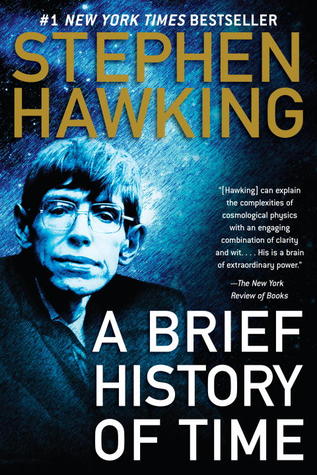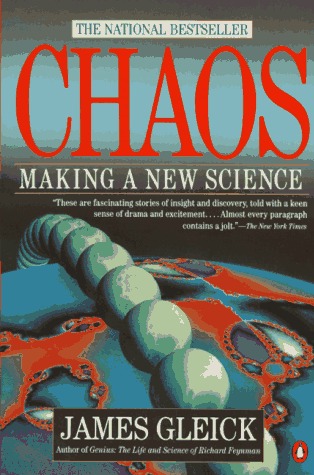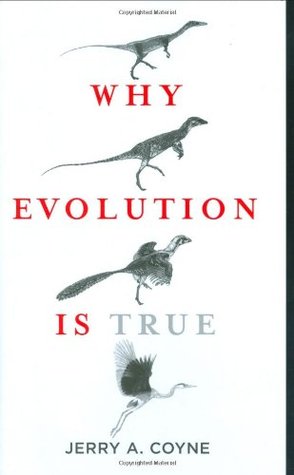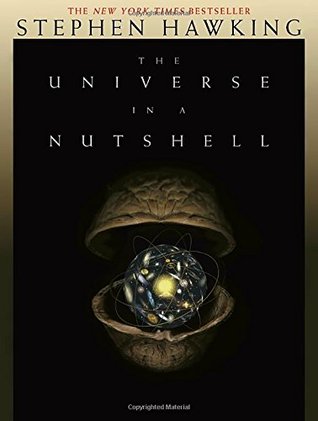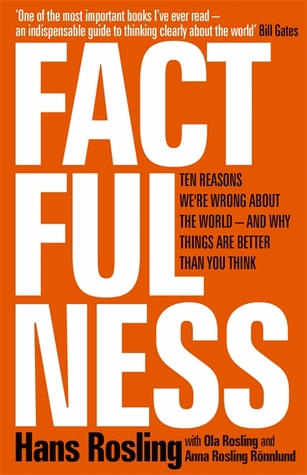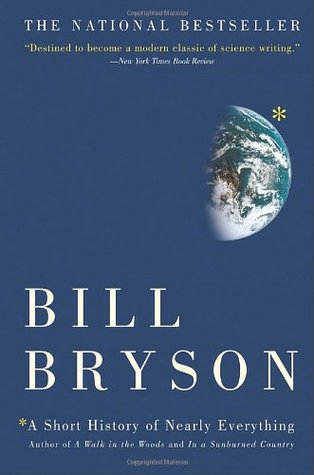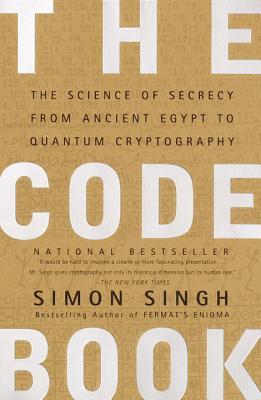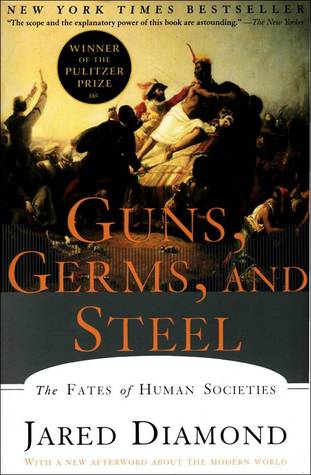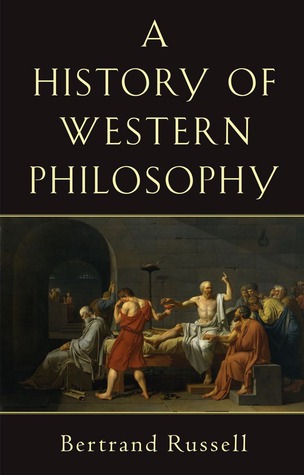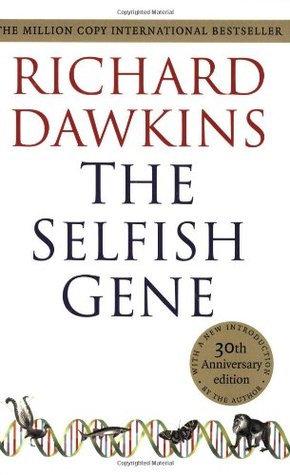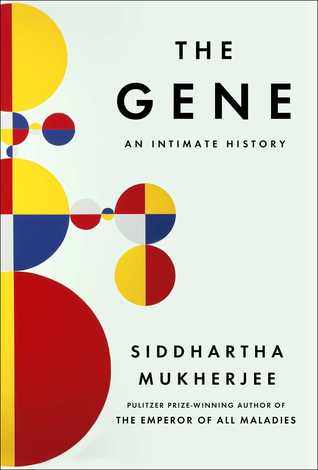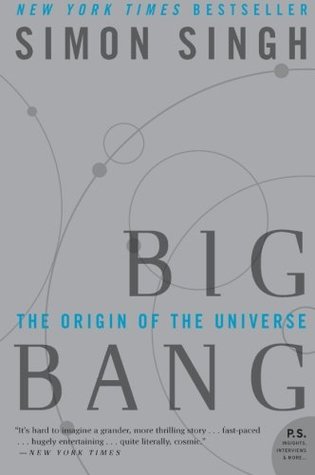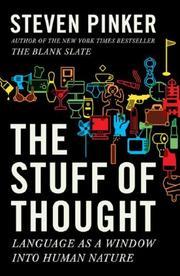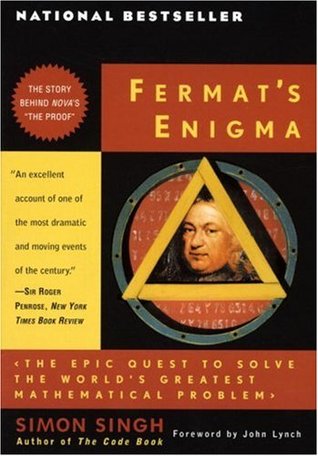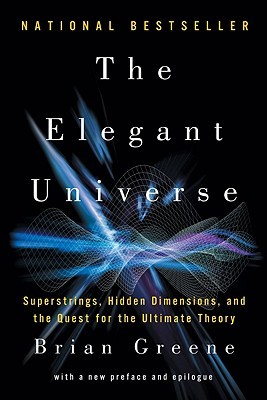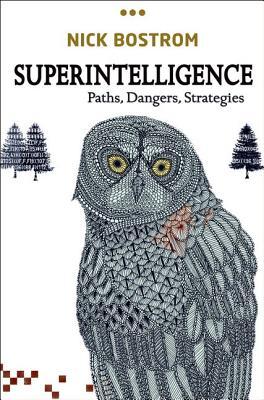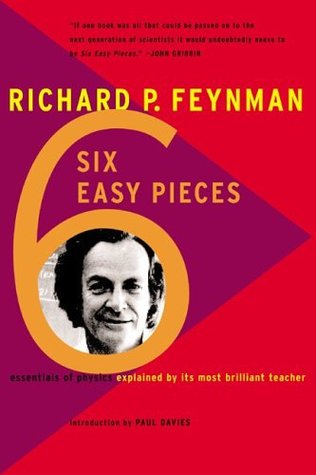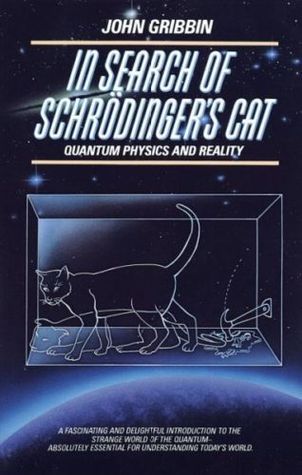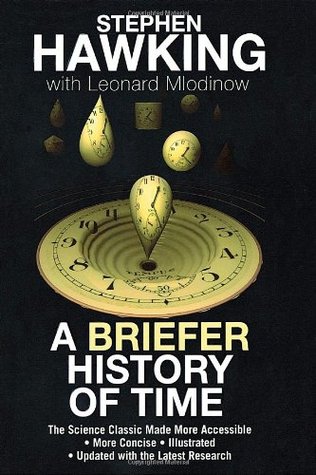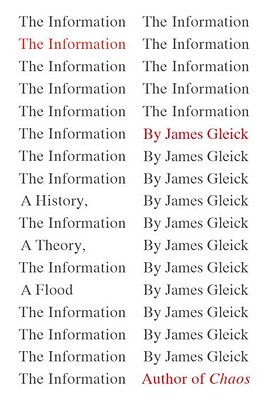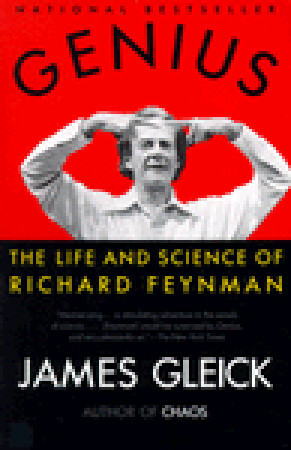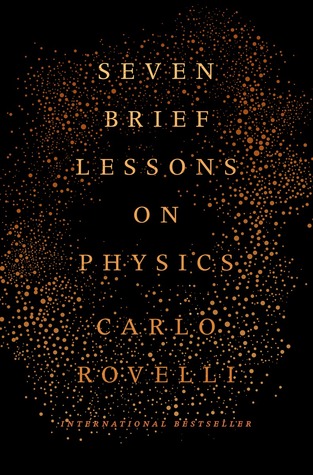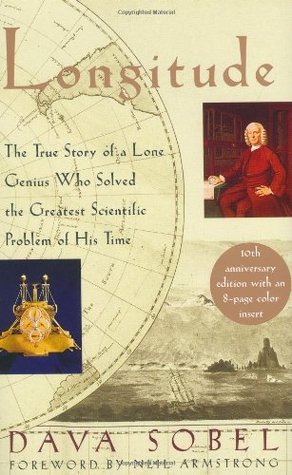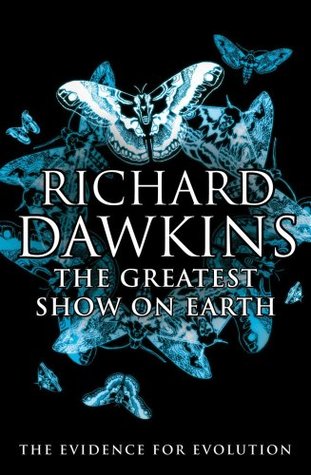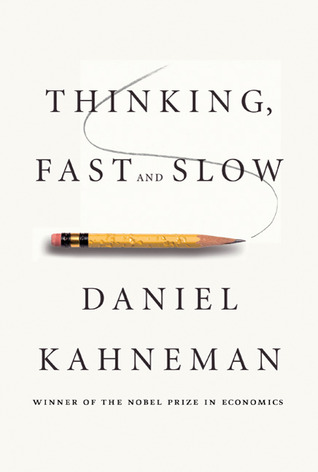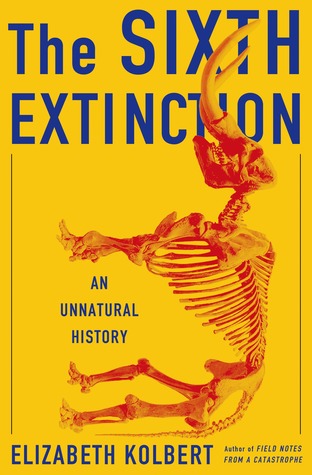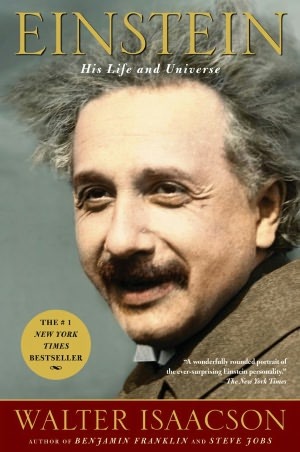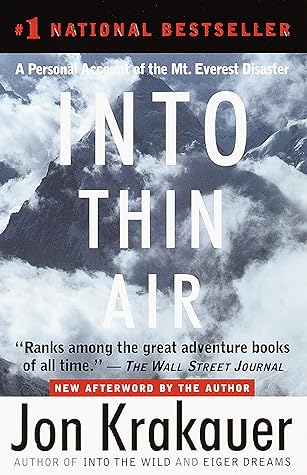Powered by a book like {foo}
Recommendations based on Quantum: Einstein, Bohr and the Great Debate About the Nature of Realityby Manjit Kumar
* statistically, based on millions of data-points provided by fellow humans
A Brief History of Time
by Stephen Hawking
Exploring the depths of time and space and the emergence of the universe.
In the ten years since its publication in 1988, Stephen Hawking's classic work has become a landmark volume in scientific writing, with more than nine million copies in forty languages sold ... (Goodreads)
Chaos: Making a New Science
by James Gleick
Investigation of complex systems and the impact of chaos on scientific understanding.
A work of popular science in the tradition of Stephen Hawking and Carl Sagan, this 20th-anniversary edition of James Gleick’s groundbreaking bestseller Chaos introduces a whole new readership to ... (Goodreads)
Phantoms in the Brain: Probing the Mysteries of the Human Mind
by V.S. Ramachandran
An exploration of the human brain, examining its functions and mysteries.
Neuroscientist V.S. Ramachandran is internationally renowned for uncovering answers to the deep and quirky questions of human nature that few scientists have dared to address. His bold insights about ... (Goodreads)
Why Evolution Is True
by Jerry A. Coyne
Comprehensive exploration of the evidence for evolutionary biology.
Why evolution is more than just a theory: it is a fact. In all the current highly publicized debates about creationism and its descendant "intelligent design," there is an element of the controversy ... (Goodreads)
QED: The Strange Theory of Light and Matter
by Richard P. Feynman
Exploring the wave-particle duality of light and matter, and their implications for our understanding of the universe.
Famous the world over for the creative brilliance of his insights into the physical world, Nobel Prize-winning physicist Richard Feynman also possessed an extraordinary talent for explaining ... (Goodreads)
The Universe in a Nutshell
by Stephen Hawking
A concise and accessible explanation of the most complex theories in physics, from the Big Bang to black holes.
Stephen Hawking’s phenomenal, multimillion-copy bestseller, A Brief History of Time, introduced the ideas of this brilliant theoretical physicist to readers all over the world. Now, in a major ... (Goodreads)
Factfulness: Ten Reasons We're Wrong About the World – and Why Things Are Better Than You Think
by Hans Rosling
A data-driven book that challenges common misconceptions about the world and presents a more accurate, optimistic view of global progress.
Factfulness:, The stress-reducing habit of only carrying opinions for which you have strong supporting facts. When asked simple questions about global trends— what percentage of the world’s ... (Goodreads)
A Short History of Nearly Everything
by Bill Bryson
A captivating overview of the natural sciences, spanning the history of the universe.
In Bryson's biggest book, he confronts his greatest challenge: to understand—and, if possible, answer—the oldest, biggest questions we have posed about the universe and ourselves. Taking as territory ... (Goodreads)
The Code Book: The Science of Secrecy from Ancient Egypt to Quantum Cryptography
by Simon Singh
A comprehensive history of cryptography and its role in shaping our world.
In his first book since the bestselling Fermat’s Enigma , Simon Singh offers the first sweeping history of encryption, tracing its evolution and revealing the dramatic effects codes have had on wars, ... (Goodreads)
Guns, Germs, and Steel: The Fates of Human Societies
by Jared Diamond
Tracing the origins of human civilizations through the lens of geography, technology, and biology.
"Diamond has written a book of remarkable scope ... one of the most important and readable works on the human past published in recent years." Winner of the Pulitzer Prize and a national bestseller: ... (Goodreads)
A History of Western Philosophy
by Bertrand Russell
A comprehensive overview of the major philosophical thinkers and their ideas.
Since its first publication in 1945 Lord Russell's A History of Western Philosophy has been universally acclaimed as the outstanding one-volume work on the subject—unparalleled in its ... (Goodreads)
The Selfish Gene
by Richard Dawkins
A study of evolutionary biology, exploring how genes act and how they impact behavior.
Inheriting the mantle of revolutionary biologist from Darwin, Watson, and Crick, Richard Dawkins forced an enormous change in the way we see ourselves and the world with the publication of The ... (Goodreads)
The Gene: An Intimate History
by Siddhartha Mukherjee
An exploration of the science of genetics and its implications for humanity.
Spanning the globe and several centuries, The Gene is the story of the quest to decipher the master-code that makes and defines humans, that governs our form and function. The story of the gene ... (Goodreads)
Big Bang: The Origin of the Universe
by Simon Singh
A comprehensive exploration of the Big Bang Theory, from its earliest beginnings to its implications today.
A half century ago, a shocking Washington Post headline claimed that the world began in five cataclysmic minutes rather than having existed for all time; a skeptical scientist dubbed the maverick ... (Goodreads)
The Stuff of Thought: Language as a Window into Human Nature
by Steven Pinker
A fascinating exploration of how language reflects and shapes our thoughts, emotions, and experiences.
New York Times bestselling author Steven Pinker possesses that rare combination of scientific aptitude and verbal eloquence that enables him to provide lucid explanations of deep and powerful ideas. ... (Goodreads)
Fermat's Enigma
by Simon Singh
Uncovering the centuries-old mathematical mystery of Pierre de Fermat's Last Theorem.
xn + yn = zn, where n represents 3, 4, 5, ...no solution "I have discovered a truly marvelous demonstration of this proposition which this margin is too narrow to contain." With these words, the ... (Goodreads)
The Elegant Universe: Superstrings, Hidden Dimensions, and the Quest for the Ultimate Theory
by Brian Greene
Exploring the hidden realms of physics, in pursuit of a unified theory of nature.
Brian Greene, one of the world's leading string theorists, peels away the layers of mystery surrounding string theory to reveal a universe that consists of eleven dimensions, where the fabric of ... (Goodreads)
Superintelligence: Paths, Dangers, Strategies
by Nick Bostrom
A philosophical exploration of the implications of artificial intelligence on humanity.
Superintelligence asks the questions: what happens when machines surpass humans in general intelligence? Will artificial agents save or destroy us? Nick Bostrom lays the foundation for understanding ... (Goodreads)
Six Easy Pieces: Essentials of Physics By Its Most Brilliant Teacher
by Richard P. Feynman
Exploring the fundamentals of physics, from the perspective of one of the greatest minds of the 20th century.
Six Easy Pieces: Essentials of Physics Explained by Its Most Brilliant Teacher is a publishing first. This set couples a book containing the six easiest chapters from Richard P. Feynman's landmark ... (Goodreads)
In Search of Schrödinger's Cat: Quantum Physics and Reality
by John Gribbin
Exploring the mysterious implications of quantum physics and its potential for understanding the universe.
It is so shocking that Einstein could not bring himself to accept it. It is so important that it provides the fundamental underpinning of all modern sciences. Without it, we'd have no nuclear power ... (Goodreads)
A Briefer History of Time
by Stephen Hawking
A concise overview of the history of the universe, from the Big Bang to the present day.
Stephen Hawking's worldwide bestseller, A Brief History of Time, has been a landmark volume in scientific writing. Its author's engaging voice is one reason, and the compelling subjects he addresses ... (Goodreads)
The Information: A History, a Theory, a Flood
by James Gleick
A comprehensive history of the development of information technology, from ancient times to the digital age.
James Gleick, the author of the best sellers Chaos and Genius , now brings us a work just as astonishing and masterly: a revelatory chronicle and meditation that shows how information has become the ... (Goodreads)
Genius: The Life and Science of Richard Feynman
by James Gleick
A biography of physicist Richard Feynman, exploring his life and scientific contributions to quantum mechanics and the Manhattan Project.
An illuminating portrayal of Richard Feynman—a giant of twentieth century physics—from his childhood tinkering with radios, to his vital work on the Manhattan Project and beyond Raised in ... (Goodreads)
Seven Brief Lessons on Physics
by Carlo Rovelli
An exploration of the fundamentals of physics, revealing its true beauty.
All the beauty of modern physics in fewer than a hundred pages. This is a book about the joy of discovery. A playful, entertaining, and mind-bending introduction to modern physics, it's already a ... (Goodreads)
Longitude: The True Story of a Lone Genius Who Solved the Greatest Scientific Problem of His Time
by Dava Sobel
Story of a man's determination to solve the complex problem of determining longitude at sea.
Anyone alive in the eighteenth century would have known that "the longitude problem" was the thorniest scientific dilemma of the day—and had been for centuries. Lacking the ability to measure their ... (Goodreads)
The Greatest Show on Earth: The Evidence for Evolution
by Richard Dawkins
An exploration of the evidence and science of evolution, highlighting its importance in understanding the history of life on Earth.
Charles Darwin’s masterpiece, On the Origin of Species , shook society to its core on publication in 1859. Darwin was only too aware of the storm his theory of evolution would provoke but he would ... (Goodreads)
Thinking, Fast and Slow
by Daniel Kahneman
An exploration of the two systems of the mind, and how they influence decision-making.
In the highly anticipated Thinking, Fast and Slow , Kahneman takes us on a groundbreaking tour of the mind and explains the two systems that drive the way we think. System 1 is fast, intuitive, and ... (Goodreads)
The Sixth Extinction: An Unnatural History
by Elizabeth Kolbert
Examination of the current extinction of species caused by human activity and the potential global implications.
Over the last half-billion years, there have been five mass extinctions, when the diversity of life on earth suddenly and dramatically contracted. Scientists around the world are currently monitoring ... (Goodreads)
Einstein: His Life and Universe
by Walter Isaacson
A comprehensive biography of Albert Einstein, exploring his personal life, scientific achievements, and impact on the world.
Einstein was a rebel and nonconformist from boyhood days, and these character traits drove both his life and his science. In this narrative, Walter Isaacson explains how his mind worked and the ... (Goodreads)
Into Thin Air: A Personal Account of the Mount Everest Disaster
by Jon Krakauer
A gripping narrative of the 1996 expedition on Mount Everest that resulted in tragedy.
When Jon Krakauer reached the summit of Mt. Everest in the early afternoon of May 10, 1996, he hadn't slept in fifty-seven hours and was reeling from the brain-altering effects of oxygen depletion. ... (Goodreads)
